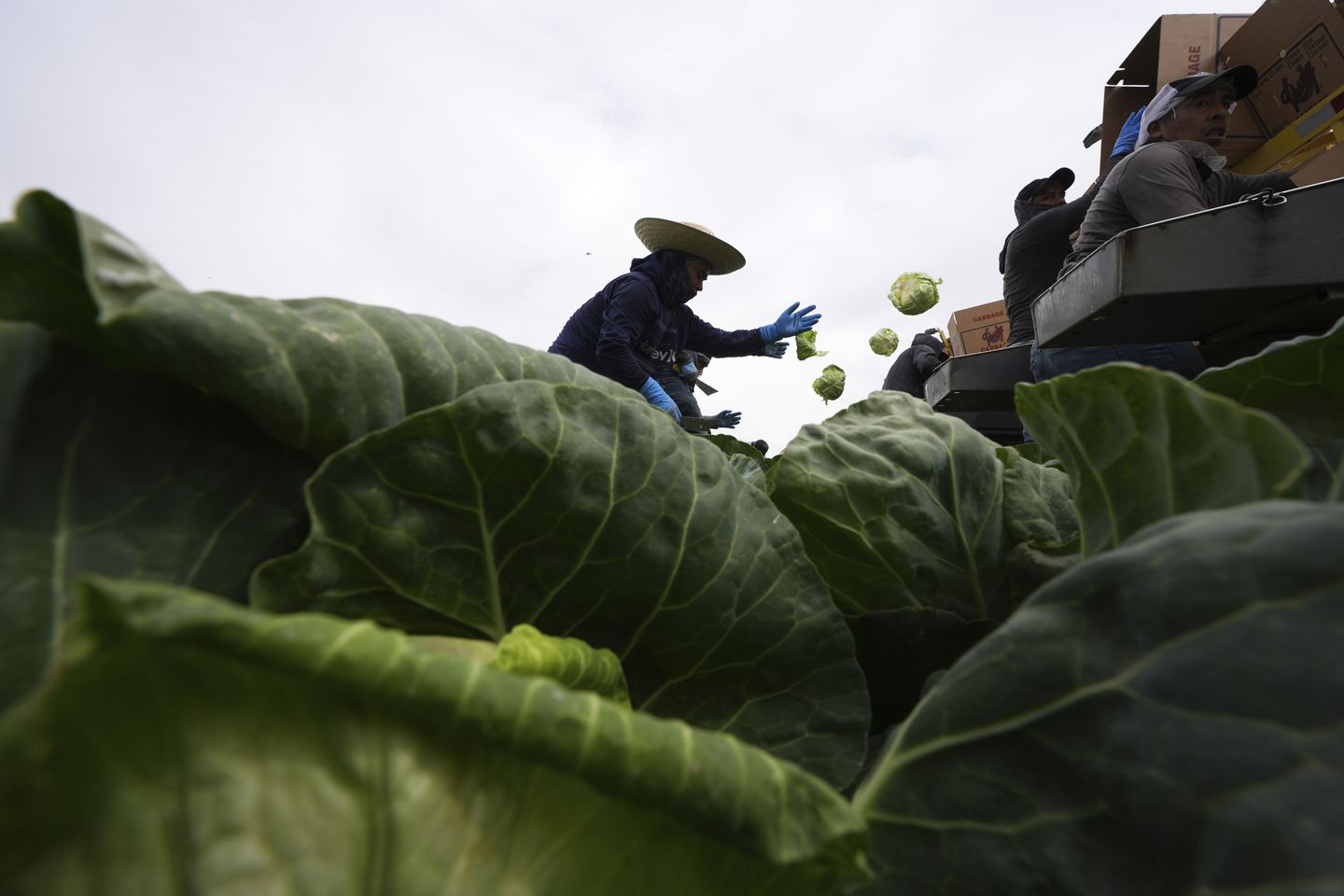
China is a “threatened market” for U.S. farmers as the trade impasse between Beijing and Washington leads to canceled orders and a complex scramble to find new markets, a major trade group said Monday.
Roughly 50% of Chinese orders for U.S.-grown products are being scrapped due to sky-high tariffs, affecting products such as soybeans, pork, beef, logs, paper and lumber, according to Peter Friedmann, executive director of the Agriculture Transportation Coalition.
“All of it is being canceled,” he told The Washington Times. “And it’s going down fast.”
American farmers were on the front lines of trade spats during President Trump’s first term and required a bailout from Washington.
The latest trade fight features tariffs exceeding 100% on both sides, and it’s starting to bite.
“China has become very capable of finding the soft spots, the places it can inflict a lot of injury,” Mr. Friedmann said. “This year, it is across-the-board, dramatic reductions of U.S. exports of agriculture to China.”
It’s a bitter pill for the sector, which relies heavily on export markets to stay afloat. While it can look for alternate buyers in India, Vietnam and other places, expanding to new markets usually requires incentives — lower prices — that eat into farmers’ thin profit margins.
At the same time, China has fostered alternate sources for the products it needs, notably soybeans from Brazil.
Compared to six years ago, when the first U.S.-China tariffs hit, “China now has even greater access to substitutes for the agriculture they currently purchase from the U.S.,” Mr. Friedmann said.
The Trump administration stood its ground on Monday, saying the onus is on China to act first because of its export-heavy economy.
“I believe that it’s up to China to deescalate because they sell five times more to us than we sell to them. And so, these 125%, 145% tariffs are unsustainable,” Treasury Secretary Scott Bessent told CNBC.
China is trying to ride out the trade war while its economy faces preexisting headwinds, including a real-estate slowdown and lower domestic consumption.
Officials in Beijing have floated subsidies to prop up exporting businesses, a linchpin of China’s economy, and proposed support for companies that hire new graduates.
Given its struggles, Mr. Bessent is confident the Chinese will come to the table.
“The Chinese business model is predicated on selling subsidized goods into the U.S.,” Mr. Bessent said Monday. “It’s just not a long-term business strategy for them. So, I am sure that they will come and want to deescalate.”
The standoff stems from Mr. Trump’s decision on April 2 to impose a 10% tariff on all imports and heftier levies on countries that sell plenty of products to U.S. consumers but don’t buy nearly as much from American producers.
Wall Street has been on a roller-coaster ride since Mr. Trump announced his plan.
The Dow Jones Industrial Average closed up 114 points, or 0.28%, on Monday while the S&P 500 finished up slightly, 0.06%, buoyed by tech-sector gains. The Nasdaq dropped a bit, 0.1%.
Investors are eager to see a thaw in the China-U.S. trade war and for trade deals with other countries to happen.
The White House is pointing to progress in negotiating down trade barriers with countries that received a 90-day pause in tariffs because they decided to strike deals.
“We’re working around the clock. The trade team is working all day,” White House press secretary Karoline Leavitt said Monday. “This administration is full speed ahead in cutting good and fair trade deals on behalf of the American worker.”
Mr. Bessent said Japan and India are among the major economies that could soon reach an agreement with the U.S.
“I would guess that India would be one of the first trade deals we would sign,” the secretary said. “So, watch this space.”
But China is a special case. It retaliated against Mr. Trump’s trade plan, resulting in sky-high tariffs that will diminish trade between the world’s largest economies.
The two sides can’t even agree on whether they are talking to each other.
The Chinese Foreign Ministry said Monday that President Xi Jinping has not called Mr. Trump about trade, contradicting the U.S. leader’s claim to Time Magazine that the Chinese leader had reached out.
“As far as I know, there have not been any calls between the two presidents recently,” said Foreign Ministry spokesman Guo Jiakun. “Let me make it clear one more time that China and the U.S. are not engaged in any consultation or negotiation on tariffs.”
The U.S. and China are in a stalemate as big retailers and farmers brace for the impact of high tariffs. CEOs from Walmart and Target recently warned Mr. Trump that tariffs would disrupt supply chains and might lead to empty shelves.
Mr. Friedmann said trans-Pacific shipping has started to dry up, affecting two-way trade between China and the U.S.
“They’re not shipping because people are not going to pay the tariffed amount,” he said.
Mr. Friedmann said “nobody knows” where the trade spat is going, but the agricultural sector is banking on leaders to get beyond it.
That includes officials in Beijing, who say they are ready to fight but will ultimately face economic pressure at home.
“They can’t replace everything they buy from us elsewhere in the world,” Mr. Friedmann said. “China desperately needs U.S. consumers. If they can’t employ their people, that’s really a problem for them. It works both ways.”












